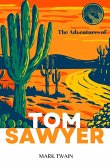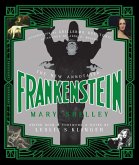"The Call of the Wild," penned by the renowned American author Jack London, is a literary masterpiece that transcends time and genre, immersing readers in a thrilling journey through the unforgiving landscapes of the Yukon during the Klondike Gold Rush. Published in 1903, this novella remains a testament to London's profound understanding of the wild, his keen insights into the primal instincts that lie dormant within every being, and his ability to craft a narrative that resonates with the raw essence of the natural world. At its core, "The Call of the Wild" is a tale of Buck, a domesticated and dignified St. Bernard-Scotch Collie mix, whose life takes an abrupt and transformative turn when he is stolen from his comfortable home in sunny California. Sold into the harsh and demanding life of an Alaskan sled dog, Buck is thrust into an environment that awakens the dormant, primal instincts within him. The Yukon, with its bone-chilling temperatures and untamed wilderness, becomes the crucible in which Buck undergoes a profound metamorphosis from a pampered house pet to a formidable leader of the pack. London's narrative prowess is evident in his vivid and evocative descriptions of the natural world. The rugged beauty of the Klondike, with its icy expanses and towering pines, serves as both a majestic backdrop and an unyielding adversary for Buck. London skillfully weaves a tapestry of sensory details, allowing readers to feel the biting cold, hear the crunch of snow beneath paw, and sense the tension in the air as Buck faces the challenges that come with survival in the wild. Yet, beyond the physical challenges, London delves into the psychological and emotional terrain of his characters. The call of the wild, as the title suggests, is not merely a summons to the untamed landscapes of the Yukon, but a stirring from within-an ancestral echo that reverberates through Buck's soul. It is the ancient voice of his lupine forebears, urging him to shed the trappings of domesticity and embrace the primal instincts that lie dormant within him. As Buck heeds this call, he undergoes a profound spiritual and psychological journey, grappling with questions of identity, loyalty, and the relentless pursuit of freedom. London's narrative style is marked by its brevity and intensity. Each page is infused with a sense of urgency, mirroring the pace of sled dogs racing through the frozen wilderness. The prose is muscular and direct, devoid of unnecessary embellishments, yet rich in its ability to evoke powerful emotions. Through concise yet impactful language, London captures the essence of Buck's struggle for survival and self-discovery. "The Call of the Wild" is not merely a story of one dog's journey; it is a meditation on the symbiotic relationship between humanity and the untamed forces of nature. London, drawing from his own experiences in the Klondike, weaves a narrative that transcends the boundaries of species and speaks to the universal themes of resilience, adaptability, and the unyielding spirit of the wild. As readers embark on this literary odyssey, they, too, feel the call-an irresistible pull to venture into the heart of the wilderness, to confront the primal instincts that lie dormant within, and to embrace the untamed beauty of the world that Jack London so brilliantly brings to life.
Hinweis: Dieser Artikel kann nur an eine deutsche Lieferadresse ausgeliefert werden.
Hinweis: Dieser Artikel kann nur an eine deutsche Lieferadresse ausgeliefert werden.








